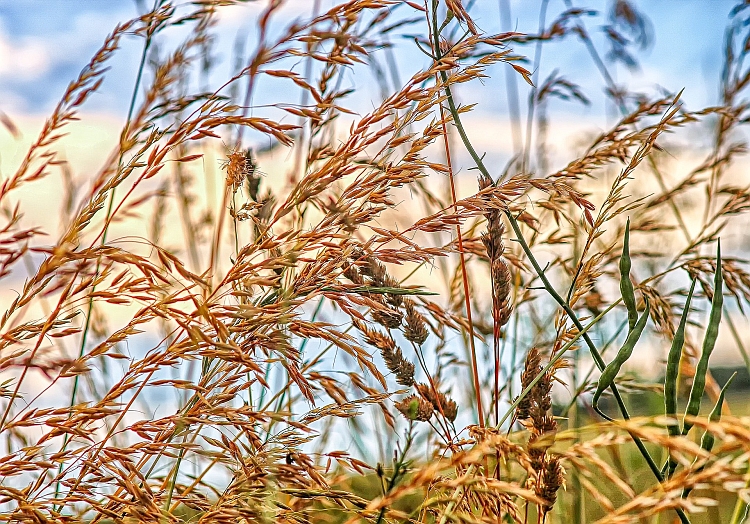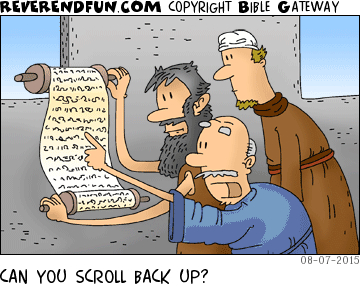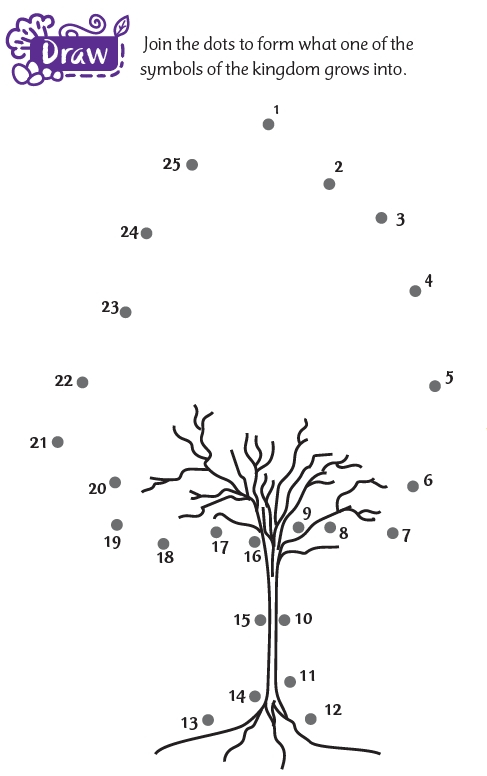Hello everyone,
Welcome to the latest issue of our church newsletter. Hope that you are all continuing to keep well and stay safe. This newsletter is one of our ways of trying to maintain contact and a sense of community during this time when we cannot meet together as a church family. You can find previous issues of the newsletter here. We would love to hear from you and are looking for uplifting and encouraging content to share in future issues of this newsletter. If you have any ideas or content that we can share, please do email them to Louise (publicity@christchurchuxbridge.org.uk)
We start with our opening prayer (from Psalm 95):
O come, let us sing to the Lord;
Let us make a joyful noise to the rock of our salvation!
Let us come into his presence with thanksgiving;
Let us make a joyful noise to him with songs of praise!
O come, let us worship and bow down,
Let us kneel before the Lord, our Maker!
For he is our God,
And we are the people of his pasture,
And the sheep of his hand.
The Lord is here: His Spirit is with us
Amen
Reflection from last Sunday:
Today’s gospel reading is another of Jesus’ parables, told shortly after the parable of the sower and the seed, to an audience who didn’t take food for granted and knew all about the problems that a farmer might face between sowing seed and harvest time.
But, as always, the meaning wasn’t clear. Parables are a bit like clues in a cryptic crossword. You can puzzle for ages but as soon as you hear the answer it’s obvious. The disciples are often painted as being a bit slow to catch on but were not alone in failing to understand and they ask Jesus, “Why do you speak to them in parables?”
And Jesus replies reminding them of what the prophet Isaiah had said. The people saw, but didn’t see, listened but neither heard nor understood. He added that the disciples were blessed because they would see and they would understand. But they still needed him to explain.
The parable of the sower and the seed had been about the message of the Kingdom and today’s parable, the wheat and the weeds, is about the kingdom itself. So hard to pin down. The kingdom of heaven is like… but what is it like? A man sowing good seed on the land.
An enemy comes when everyone is asleep and sows weeds. They might have heard of enemies putting salt on the land, but sowing weeds? After some time, his servants notice, query the quality of the seeds their master had sown, and want to pull out the weeds. The master tells them to wait till the harvest and then things can be sorted out.
The tradition of storytelling is an ancient one, still popular in the coffee houses of the middle east today. Jesus was a skilled story-teller. He always had an audience and his stories were based in real life.
They knew that wheat and the weed called darnel looked very similar. That it was only after the plants had matured that the difference was really obvious. They also knew that the darnel roots went much deeper into the soil than the roots of wheat and that trying to pull them out when shoots were young would certainly damage the wheat. They knew that at harvest time the darnel could be separated and usefully burnt as fuel, but there were some elements of the story that must have intrigued them.
Why was the master planting the seeds himself when he had servants and who was this mysterious enemy?
Throughout the recent months I’ve been blessed by having a small garden and I have spent many hours watching and weeding, tidying and planting with various degrees of success. It was exciting seeing long established plants appear and bloom. It was often hard to discern what were weeds and what were not, and surprising to realise that, when left alone, weeds can be quite beautiful. I discovered how fragile young seedlings can be, and, in my life, as in my gardening, I have had to learn to be more patient.
Having patience, and waiting till the time is right, is one of the lessons Jesus wants his disciples to learn when he comes to explain the parable to them.
The sower is Jesus and he refers to himself as The Son of Man. Jews would have recognised this expression as coming from the book of Daniel and referring to the person whom God appoints as judge and ruler after the defeat and ending of all worldly empires.
The enemy is the evil one who sows wickedness in the world.
The field is the world. For the Jews of Jesus’ day, and for members of Matthew’s early church the world was a place that was dominated by Roman Imperial power, a cruel, tyrannical regime which affected every aspect of their lives – socially, economically and crucially for Jews, in their worship.
The wheat and the weeds are the good and evil in the world.
People looked forward to the arrival of the kingdom of heaven with the expectation that lives would be changed. When the long-prayed for and long-awaited Messiah would rescue them. Not so simple, though. Jesus knew that rebellion against the Romans would result in horrific and devastating retaliation.
Jesus had said that the Kingdom of heaven was indeed at hand, but like the servants in the parable the disciples were told to wait till the harvest. The kingdom would come, but not yet. To a people suffering they must have wondered just how long were they to wait? When would the harvest be?
Throughout the Hebrew Bible we see God changing things, but these changes often happen very slowly. Time and again we hear the cries of individuals and of communities: ‘How long, O Lord, how long?’
When something is wrong our first instinct is to do something about it, to put a stop it, to get rid of it. However, taking stock of the situation and giving things a bit of thought is always a sensible approach. Rushing in can sometimes do more harm than good. Actions have consequences as the servants who wanted to weed out the young weeds would have discovered.
We can always look back with the gift of hindsight and realise how things could have been done better. It’s so easy to say, I wouldn’t have done that. They shouldn’t have done that…, If only they had… and, sometimes, I wish I had thought it through. The situations we face aren’t always easy but we have to live as best we can in them, planning and acting to change them where possible.
Our televisions have long accustomed us to seeing tyrants and tragedies in far flung corners of the world. Disasters both natural and man-made. Closer to home we have been aware of homelessness, hunger, poverty and unemployment. Possibly a ‘them, not us’ point of view, but Covid has brought feelings of anxiety, loss and loneliness to us all and we might well join voices in asking, “How long?” Many of us have had more time ok to look and see inequalities and wrongs, to listen and hear cries for long-overdue change. But at the same time, to feel helpless and powerless and perhaps even ask the questions, “Why does God allow this? Why doesn’t he do something about it? Doesn’t God care?
The servants had to show patience, waiting till the harvest to avoid losing some of the precious crop. Jesus was telling his disciples to show patience. God was in control. God would act, but in his own time. God was showing patience and giving everyone time to hear the message of the kingdom, to change and to act. Actually, that must have been quite hard for the disciples to hear and understand.
Jesus talked about loving enemies. About God sending the sun and the rain on both good and evil. They were God’s chosen people, but Jesus was saying the God’s mercy was for everyone. That it wasn’t up to them to judge who were good and bad, who should or shouldn’t be included in God’s mercy.
The message was for them and for us today. God is giving us time to be loving, wise, just and true before the final harvest.
To work towards eradicating the things that separate people from God. Things which cause many of society’s ills- like war, greed, exploitation and selfishness. And not to be too quick to judge others, learning perhaps to show more patience, with everyone living and working together for the common good.
Jesus showed compassion, love and patience for all. We should try to do likewise. And, remain hopeful. Jesus cares. Jesus says that in him we have seen the Father. God cares.
Anne Byfield
Our readings for this week:
Matthew 13: 31-33, 44-52 (NIV)
The Parables of the Mustard Seed and the Yeast
31 He told them another parable: “The kingdom of heaven is like a mustard seed, which a man took and planted in his field. 32 Though it is the smallest of all seeds, yet when it grows, it is the largest of garden plants and becomes a tree, so that the birds come and perch in its branches.”
33 He told them still another parable: “The kingdom of heaven is like yeast that a woman took and mixed into about sixty pounds[a] of flour until it worked all through the dough.”
The Parables of the Hidden Treasure and the Pearl
44 “The kingdom of heaven is like treasure hidden in a field. When a man found it, he hid it again, and then in his joy went and sold all he had and bought that field.
45 “Again, the kingdom of heaven is like a merchant looking for fine pearls. 46 When he found one of great value, he went away and sold everything he had and bought it.
The Parable of the Net
47 “Once again, the kingdom of heaven is like a net that was let down into the lake and caught all kinds of fish. 48 When it was full, the fishermen pulled it up on the shore. Then they sat down and collected the good fish in baskets, but threw the bad away. 49 This is how it will be at the end of the age. The angels will come and separate the wicked from the righteous 50 and throw them into the blazing furnace, where there will be weeping and gnashing of teeth.
51 “Have you understood all these things?” Jesus asked.
“Yes,” they replied.
52 He said to them, “Therefore every teacher of the law who has become a disciple in the kingdom of heaven is like the owner of a house who brings out of his storeroom new treasures as well as old.”
Further readings from the lectionary this week are as follows:
- 1 Kings 3: 5-12
- Psalm 119: 129-136
- Romans 8: 26-39
Our worship
We are now live-streaming services via Facebook each Sunday at 11am. You can find our services here. You do not have to be a Facebook user to watch this – our services are publicly viewable. This week we will be welcoming Rev’d Andrew Pottage, Superintendent, Harrow and Hillingdon Methodist Circuit to share our reflection.
We will be meeting via Zoom immediately after the service for a virtual ‘coffee and chat’. The link for this will be shared in the comments on Facebook during the service.
If you are unable to join us online for our Sunday services, but would like to receive a recording of them on a memory stick to watch at home, please let us know.
Bible exploration group
Our BIble exploration group starts this Tuesday on Zoom at 7.30pm. All you need to join in is a Bible, pen/pencil and paper. Our first session will focus on Hannah. If you would like to join us for this, please contact the office for details.
(Copyright Gospel Communications International, Inc – www.reverendfun.com)
Penny for your thoughts
Matthew 22 tells how Jesus showed a penny and said, “Render unto Caesar the things that are Caesar’s, and unto God the things that are God’s”
It is usually thought that the coin was a Roman denarius with the head of Tiberius. The coin is also called the “tribute penny.” The inscription reads “Ti[berivs] Caesar Divi Avg[vsti] F[ilivs] Avgvstvs” (“Caesar Augustus Tiberius, son of the Divine Augustus”). The reverse shows a seated female, usually identified as Livia depicted as Pax.
However it could be a different coin(1) – a tetradrachm. The tetradrachm (a silver four-drachmae coin), is from the Greco-Roman city of Antioch-on-the-Orontes in what is now southern Turkey. In 31 BC E, the forces of Octavian, great-nephew and adopted son of Julius Caesar, had defeated the forces of Marc Antony and Cleopatra at the Battle of Actium, one of the most famous naval battles in military history and the end of the last civil war of the Roman Republic. About four years later, the Senate would officially bestow the title “Augustus” upon Caesar Octavian, making him the first Roman emperor in 27 BCE.
I have been asked ‘How can I pay my offertory while the church is closed?
The answer is that if you use electronic banking then transfers into the church bank account can be done. If you do not know the church bank details then contact the church office. Email office@christchurchuxbridge.org.uk Otherwise you can mail a cheque to me at the church address.
Brian Moere
1Lewis, Peter E.; Bolden, Ron (2002). The Pocket Guide to Saint Paul: Coins Encountered by the Apostle on his Travels. Wakefield Press. p. 19. ISBN 1-86254-562-6
Children’s Corner
(Taken from this week’s Roots activity sheet © ROOTS for Churches Ltd (www.rootsontheweb.com) 2002-2020. Reproduced with permission.)
Praying for other churches
This week we hold the following churches in our prayers:
- North Harrow Methodist Church
- St Margaret’s & St George’s, Harlesden (URC/Moravian)
Closing prayer
Lord God, we rejoice in your greatness and power,
your gentleness and love, your mercy and justice.
Enable us by your Spirit to honour you in our thoughts,
and words and actions,
and to serve you in every aspect of our lives;
through Jesus Christ our Lord. Amen.




